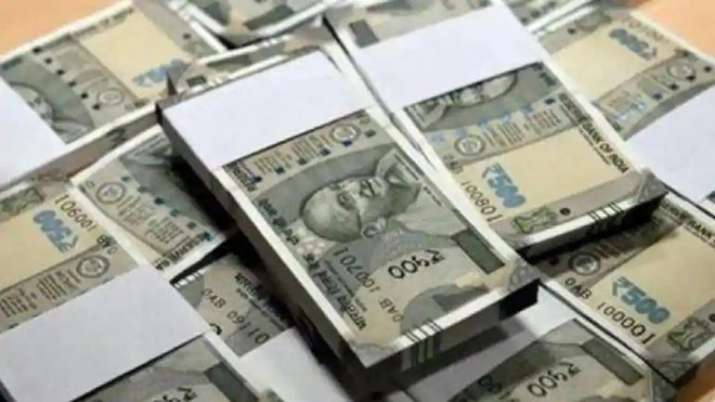
Corporate Fixed Deposits vs Bank FDs: Difference, Investment Risks – All you need to know.
Fixed deposits have always been the preferred mode of investment in India. Be it short term savings, guaranteed returns or low risk saving modes, FDs have always been known for the best saving investment options for the common man. But the low bank FD interest rates for the past few years are a cause of concern for short term investors and are prompting people to consider other savings options with higher returns. If you are also one of those who are worried due to the fall in FD interest rates, then there is no need to worry anymore. We will tell you about another better option which is Corporate Fixed Deposit.
Let us know what are Corporate Deposits and how is it different from Bank FDs?
Corporate Fixed Deposit:
Like bank fixed deposits, many companies/corporate and NBFCs also deposit and deposit money for a fixed period and pay interest. Fixed deposits of these companies and NBFCs are known as Corporate Fixed Deposits. Like other banks, corporate FDs also offer an interest rate on the income and have the same flexible tenor to decide the amount. Corporate FDs always offer you a higher rate of return as compared to bank FDs.
How is Corporate FD different from Bank FD?
The most important difference between corporate FD and bank FD is that corporate FDs offer higher interest rates whereas bank FDs offer lower interest rates to their customers.
The penalty period for early withdrawal is less as compared to bank FDs. As per RBI guidelines if you withdraw money from fixed deposit within the tenure of three months, you will have to pay the penalty amount for early withdrawal. The penalty fee and tenure depends on the NBFC and the companies.
Similarly, corporate FDs assure a guaranteed fixed rate of interest on maturity. Suppose you have taken a loan from an NBFC, and they have offered you 8 percent interest on the amount deposited like Rs 1 lakh. Hence, the assured amount of Rs 1.08 lakh will be available as a guarantee after the maturity of the corporate FD. No matter what the inflation is and the state of the markets and the economy, you will be assured of profit.
“FDs opened with NBFCs, HFCs or other corporates do not qualify for any statutory guarantee. The risk of opening a corporate FD will primarily depend on the financial capability of the issuer to pay the interest and principal of the FD,” said Sahil Arora, senior director, Paisabazaar.com.
Who should invest in Corporate FD and why?
Anyone with short-term savings goals for international travel, news car gifting, buying something valuable for a spouse or any short-term financial and emergency needs, a corporate FD can be a good option.
Bank FDs offer lower interest rates, but corporate FDs will always offer you higher interest rates. The difference is generally between 1 percent and 4 percent. Corporate FDs usually pay 4% to 9% interest rates. Also, the lock-in period is shorter as compared to bank FDs and the interest rates to be paid are flexible. Also, senior citizens can avail additional interest rates.
Some facts about Corporate FDs:
One can take an emergency loan against corporate fixed deposits up to 75% of the deposit amount. To choose which corporate FD companies are good and which are good, one must check the credit rating of that company.
“Investors should also keep in mind the credit risk ratings assigned by various credit rating agencies for corporate FDs. Since these credit ratings are assigned based on the overall financial health of corporate FD issuers, investors can get a fair idea about the credit risk involved in opening corporate FDs by referring to the specified credit ratings,” Arora said.
Investors with low risk appetite should avoid taking corporate FDs as in case of default by the corporate/NBFC, you will not be covered under the deposit insurance program where you will get an amount of Rs 5 lakhs during the failure of the company.
Whereas fixed deposits opened with scheduled banks are covered under the deposit insurance program offered by DICGC, a subsidiary of RBI. Under this programme, the depositor’s cumulative bank deposits up to Rs 5 lakh including his fixed, current, recurring and savings deposits with each scheduled bank are covered in case of bank failure.
“In the event of the Corporate FD being in default, you are not liable to receive anything. Milan Ganatra, CEO and Co-Founder, 1Silverbullet said that you need to take care about credit rating, tenure of deposit and tax implications that come as a part of investment.
Hence, corporate FDs are generally taken by NBFCs (Non-Banking and Finance Companies) and are likely to fetch you higher returns considering the risk is also high. Essentially used to finance corporate business hence interest rates and maturity period differ for each.
Keep in mind that if the annual income under corporate FD is more than Rs 5,000, then it will be taxed as per Income Tax rules.
Before choosing a corporate FD, always keep in mind the company’s credit rating, company background, repayment history to define the stability and credibility of the company in which you are depositing your money.
Hence, investing money in high rated corporate FDs with AA or AAA ratings can be a good option for moderate risk investors. Otherwise, only those investors with high risk appetite and looking for higher returns from their FDs should opt for Corporate FDs and earn better interest.
The bottom line is that corporate FDs provide you double protection by ensuring you a fixed income and offer higher interest rates as compared to other banks. Hence, always choose wisely and earn high returns by depositing your money in Corporate FDs.
.